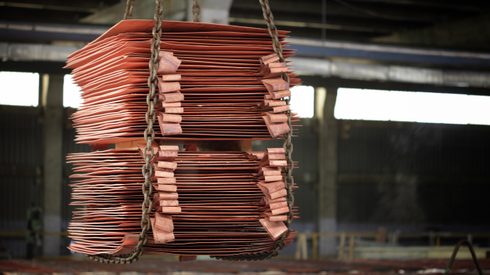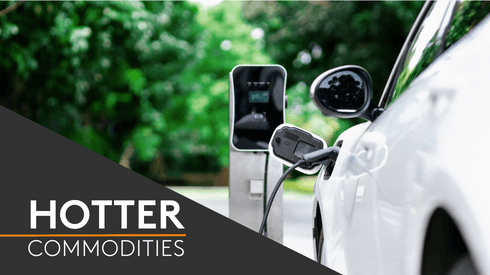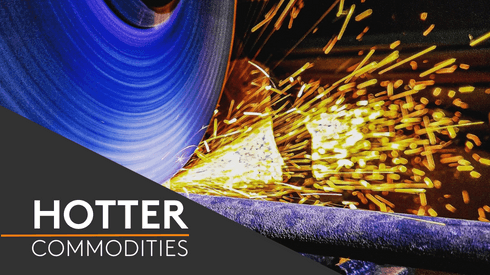Norwegian producer Norsk Hydro announced on Wednesday, August 17 that its Slovalco aluminium smelter in Slovakia will stop all production of primary aluminium by the end of September 2022 as a result of high electricity prices.
This followed news released a day earlier of industrial action at Hydro’s Sunndal plant in Norway, where 20% of production is due to be shut down during the first four weeks of the strike, causing the market to question the effect on ingot supply.
Workers at Alcoa’s Mosjøen smelter in Norway have also been involved in recent talks with Industri Energi regarding strike action at the plant, although the company noted that discussions were still underway.
“Alcoa’s Mosjøen smelter in Norway has received formal notification that a strike action would commence on Monday, August 22, unless a collective agreement is reached with Industri Energi. The potential strike action would be implemented at several industrial plants the union represents in the Norwegian electrochemical industry, including the Mosjøen smelter,” a spokesperson for Alcoa said.
“If a strike does commence, Mosjøen will follow the terms of a Controlled Reduction Agreement with the union. That agreement outlines specific actions, including a 20% reduction in smelter production by September 19, should a strike begin and last that long. We are continuing to monitor the situation. Alcoa’s Lista plant in Norway will not be included in the potential strike action,” the spokesperson added.
The Mosjøen smelter is fully powered by renewable energy and currently has a nameplate capacity of 200,000 tonnes per year, with the company announcing intentions to increase capacity by 14,000 tonnes just two months ago.
European aluminium premiums have come under increased pressure over recent weeks amid increasingly bearish macro-economic sentiment and growing recession fears across the globe.
But while participants remain largely unanimous regarding the short-term bearish sentiment, the market is split on the extent of the downfall and the impact of additional smelter cuts.
Fastmarkets assessed the aluminium P1020A premium, in-whs dp Rotterdam, at $500-540 per tonne on Tuesday, down by $10-20 per tonne from $520-550 per tonne a week earlier and down from the recent record high of $600-630 per tonne.
Participants concerned over ingot availability
Some participants expected the cuts to have little effect on the premium, amid softer demand and a recent uptick in imports from Asia, while others have maintained a more bullish view with concerns over ingot availability.
“I said anything can happen; there was a lot of talk about more cuts, and I don’t think this will be the last one,” a European trader said.
“I think it is bullish for premiums because it tightens up the supply again and no-one yet knows the level of demand that will return, but if the demand returns strongly then there could be a large issue like earlier this year,” the trader added.
Participants also remain concerned regarding overall aluminium availability as LME warehouse stocks continue to fall.
Total LME inventory levels for the lightweight metal most recently stood at 264,525 tonnes, with 61% (169,900 tonnes) available on-warrant. This level is 71% lower than at the beginning of the year, and 79% lower than the same time last year, when total stock levels stood at 1,322,150 tonnes.
Participants told Fastmarkets that logistics issues still remain a concern when trying to source units from other regions, and noted that it is not just a matter of bringing in units from overseas to replace the lost capacity.
“It’s not as simple as just bringing units in from other places; before we had ships waiting two months to unload their units,” a market source said.
Earlier this year, multiple logistics issues at ports and warehouses across Europe as well as high freight rates pushed aluminium premiums to all-time highs.
Fastmarkets assessed the aluminium P1020A premium, in-whs dup Rotterdam, at an all-time high of $500-510 per tonne in May 2022, but premiums have come under pressure in recent weeks amid softer demand and limited spot liquidity – which is typical for the summer lull.
The premium was most recently assessed at $420-450 per tonne on Wednesday, down from $445-470 per tonne at the beginning of August.
Bearish macro picture outweighs cuts for others
But while some participants are concerned about supply, others anticipated little impact from the smelter cuts, seeing further premium drops as being likely over the coming months, amid quiet consumer demand, ongoing recession fears and wider availability of imported units.
“Looking at the macro picture, there’s no doubt now that we will see complete demand destruction, and those holding metal in the back are going to want to sell it [as soon as possible]. The loss of units currently doesn’t make up for the amount of demand that has left the market,” a second trader said.
The London Metal Exchange three-month spread has been trading in a backwardation for most of August, but it did flip back into contango on Wednesday following the curtailment announcements. It was last trading at $3.75 per tonne contango, compared to a $10-per-tonne backwardation at the beginning of August.
“[The news of Slovalco cutting production] does slightly tighten supply and we’re seeing the spreads in backwardation accordingly. Not sure it presents a massive swing in reality, though,” a third trader said.
While some saw ongoing logistics issues as a barrier to imports, others were less concerned, noting that European premiums remaining close to their recent record highs kept the region as an attractive destination for material imports.
“I’m not overly concerned over supply cuts. Any capacity that gets lost from Europe will be replaced by units from Asia. The premiums in Asia are still so low in comparison to Europe and freight rates have reduced, anyone who has access to units there will bring them over – there’s no doubt,” a fourth trader said.
Fastmarkets assessed the aluminium P1020A (MJP) spot premium, cif Japan, at $90-105 per tonne on Tuesday, narrowing downward by $5 per tonne from $90-110 per tonne on August 12, under pressure from low demand and high domestic stocks.
Register for the International Aluminium Conference today
Geopolitical implications and supply chain disruption is one of the key topics on the agenda at International Aluminium 2022. Hear from a panel of industry experts discussing the continued impact of Covid on trade and supply routes, warehousing stocks, the impacts of rising energy costs and freight backlogs on producers and much more.






